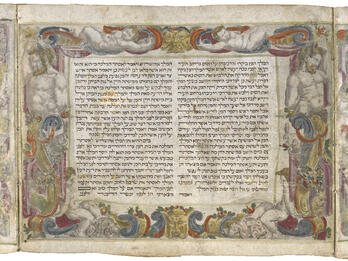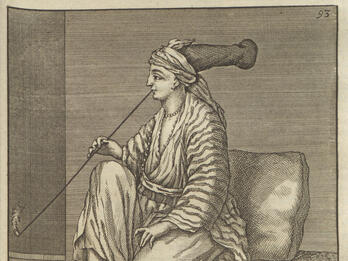Immanuel Frances
The Italian rabbi and poet Immanuel Frances, brother of the poet Jacob Frances, led a difficult life, wandering extensively and suffering misfortunes. His poetic career can be divided into three periods. In the first, 1643–1660, Frances was influenced by two popular Italian poets, Torquato Tasso and Battista Guarini. Frances composed love poems and debates about various topics, including women and rabbis. He also attacked corruption in Jewish society. In the years 1664–1667, he and his brother Jacob engaged in a literary war against Shabbetai Tzvi and kabbalah, which they saw as a threat to the Jewish people (they composed a volume of satirical poems, Tsevi mudaḥ (Banished Deer). Following the death of his brother in 1667, Immanuel led a solitary life, devoting himself to his work as a rabbi of Florence and composing religious poetry. He also wrote some Latin poems, which have not survived, and a number of responsa. Immanuel’s most famous work is Metek sefatayim (Sweetness of the Lips, 1667), concerning Hebrew poetry, which he wrote in Algeria. He also compiled, revised, and published a number of his brother’s poems.



